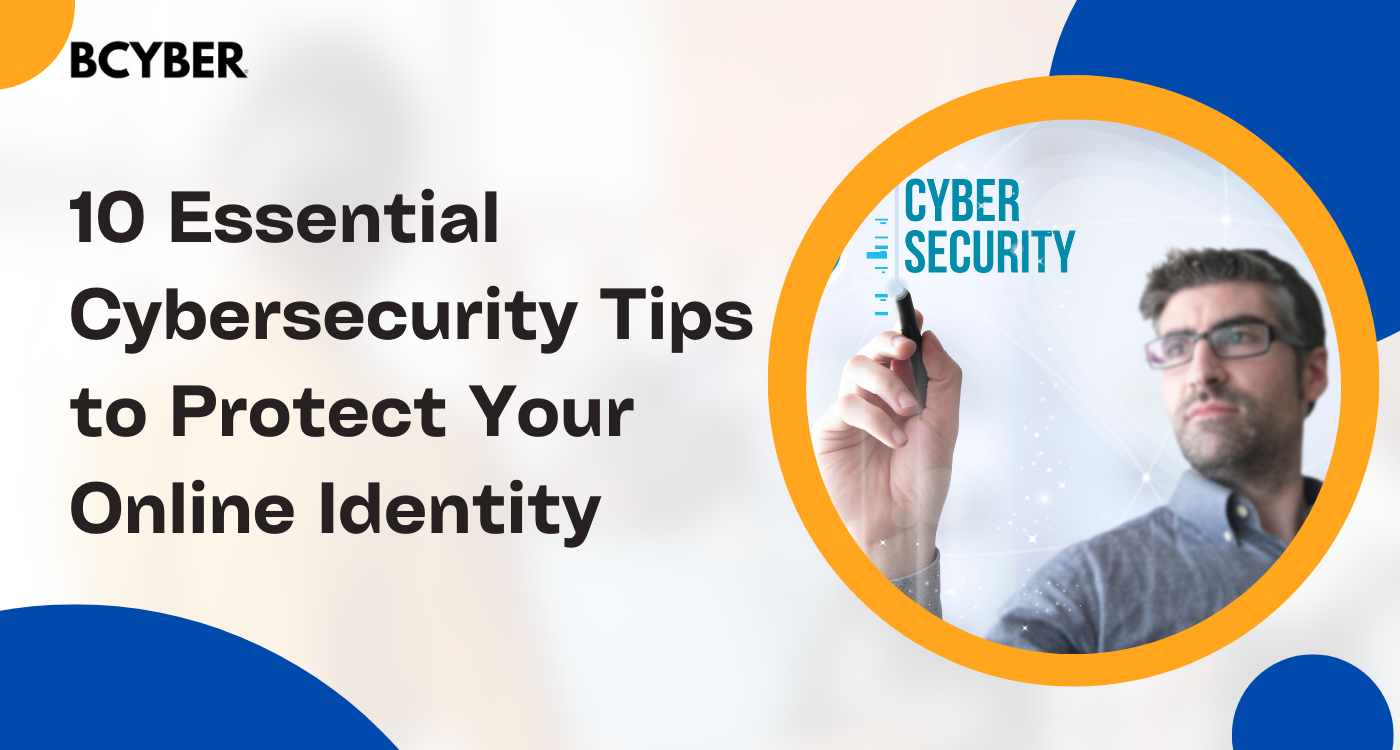10 Essential Cybersecurity Tips to Protect Your Online Identity
In today’s digital world, the importance of online identity protection cannot be overstated. Our online identities encompass a wealth of personal information, from our names and addresses to our financial details and digital footprints. Failing to protect this information can expose us to a myriad of risks. Identity theft, where cybercriminals hijack our personal data for fraudulent purposes, is a constant threat. Moreover, the repercussions of a compromised online identity extend beyond financial losses; they can damage our reputation, affect personal safety, and even result in legal consequences. BCyber Security Australia recognizes these risks and is committed to helping readers safeguard their online identities by sharing these 10 essential tips.
1. Create Strong, Unique Passwords:
- Use a combination of letters, numbers, and special characters.
- Avoid using easily guessable information like birthdays or names.
- Consider using a reputable password manager to generate and store complex passwords securely.
2. Enable Two-Factor Authentication (2FA):
- Whenever possible, enable 2FA for your online accounts.
- This adds an extra layer of security by requiring you to provide a second authentication method (like a one-time code from an app) in addition to your password.
3. Keep Software and Devices Updated:
- Regularly update your operating system, software applications, and antivirus programs.
- Updates often include patches for known security vulnerabilities.
4. Be Cautious with Email:
- Avoid clicking on links or downloading attachments from unknown or suspicious sources.
- Verify the sender’s authenticity before sharing sensitive information via email.
5. Use Secure Wi-Fi Networks:
- Avoid public Wi-Fi for sensitive activities like online banking.
- Use a virtual private network (VPN) for added security when connecting to public networks.
6. Monitor Your Accounts:
- Regularly review your bank and credit card statements for unauthorized transactions.
- Set up account alerts for any suspicious activity.
7. Practice Safe Browsing Habits:
- Verify website URLs before entering personal information.
- Look for the padlock symbol in the browser’s address bar to ensure a secure connection (https://).
8. Be Wary of Social Engineering:
- Don’t share personal information with unsolicited callers or messages.
- Be cautious of requests for money or sensitive data from unfamiliar contacts.
9. Secure Your Mobile Devices:
- Use a passcode, PIN, or biometric authentication to lock your devices.
- Install security apps that offer remote tracking and data wiping features.
10. Educate Yourself Continuously:
- Stay informed about the latest cybersecurity threats and trends.
- Regularly update your knowledge and share cybersecurity best practices with friends and family.
Remember, online identity protection is an ongoing process. By following these 10 essential cybersecurity tips, you can significantly reduce the risk of falling victim to cyberattacks and keep your online identity safe and secure. Stay vigilant, stay informed, and take proactive steps to protect yourself in the digital realm.

